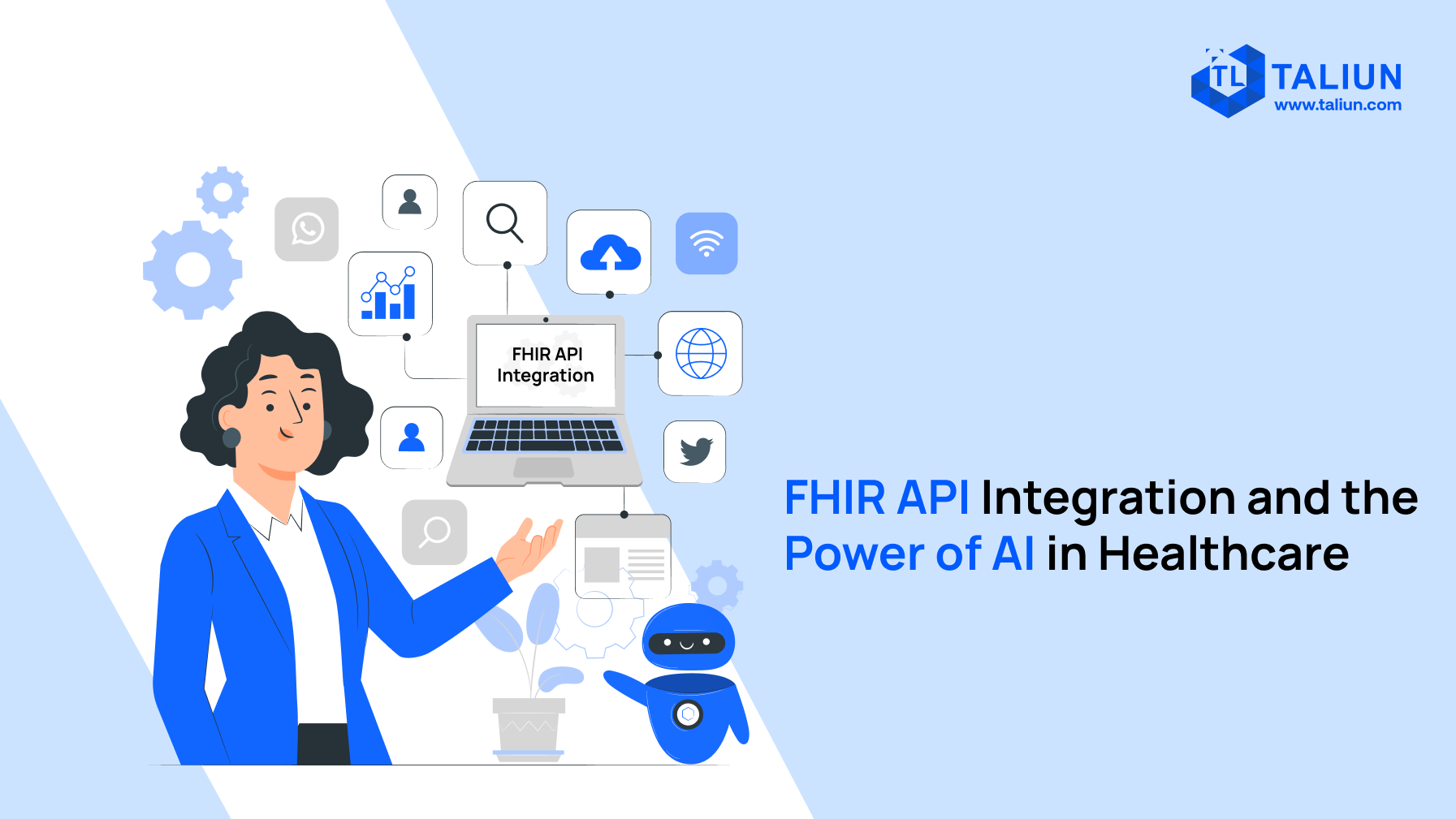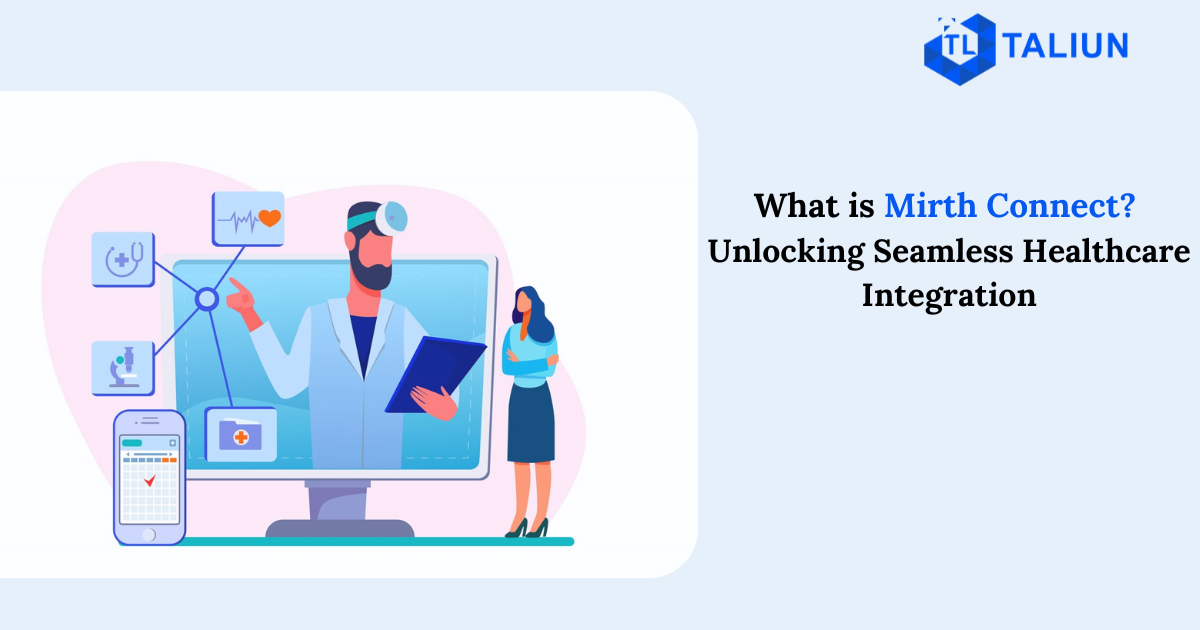FHIR API Integration and the Power of AI in Healthcare

Healthcare is changing fast, with more and more systems moving towards digital solutions. One of the key drivers of this change is the widespread use of electronic health records (EHRs) and data standards like Fast Healthcare Interoperability Resources (FHIR). FHIR APIs are crucial for connecting different healthcare systems, allowing providers, patients, and researchers to access a single, unified view of patient data.
However, integrating FHIR APIs into healthcare systems can be complicated. There are challenges like mapping data, ensuring security, and making systems scalable. This is where Artificial Intelligence (AI) can make a big difference. AI can help make the integration process smoother, faster, and more reliable.
How AI Helps with FHIR API Integration
Automated Data Mapping
- The Challenge: Healthcare systems often use different data models and terminology, which makes mapping data from one system to another time-consuming and prone to mistakes.
- AI’s Role: AI, especially Machine Learning (ML), can analyze data from different systems, find common elements, and automatically create the right mapping rules. Natural Language Processing (NLP) can also help understand clinical notes and other unstructured data, making the mapping even more accurate.
Intelligent Data Quality Checks
- The Challenge: Ensuring the accuracy and completeness of data is critical for providing good care, but it’s difficult to manage manually.
- AI’s Role: AI-powered tools can run automatic checks to find errors, inconsistencies, or missing data. Anomaly detection can even flag unusual patterns in patient data that might point to problems like errors or fraud.
Enhanced Security and Privacy
- The Challenge: Patient data is sensitive, and keeping it secure from breaches or unauthorized access is a top priority.
- AI’s Role: AI can help detect and prevent cyber threats, such as unauthorized access or data breaches. AI can also anonymize and de-identify patient information while still making it useful for research and analysis.
Improved Interoperability
- The Challenge: Making sure different healthcare systems can share data smoothly is often a challenge, especially when systems evolve or use different formats.
- AI’s Role: AI can power systems that automatically adapt to changes in data formats and standards, ensuring data continues to flow seamlessly between systems. It can also help develop standardized APIs, making communication between different systems easier.
Predictive Maintenance
- The Challenge: Identifying and fixing integration issues before they cause major problems is crucial for healthcare systems.
- AI’s Role: AI models can predict when integration issues are likely to occur by analyzing historical data. This helps healthcare providers address problems before they impact services, keeping critical systems up and running.
Smart on FHIR: The Key to Innovation
Smart on FHIR is a framework that allows third-party apps to securely access patient data from EHR systems, with the patient’s consent. When combined with AI, Smart on FHIR becomes even more powerful, enabling the development of innovative healthcare applications.
Here are some ways this combination is transforming healthcare:
- AI-powered decision support: Clinicians can get real-time insights and recommendations based on patient data accessed through Smart on FHIR, helping them make better decisions.
- Personalized medicine: AI can use patient data to create tailored treatment plans, improving outcomes for patients.
- Remote patient monitoring: Smart on FHIR allows secure transmission of patient data to healthcare providers, enabling proactive care and better management of chronic conditions.
Conclusion
AI is transforming healthcare by making care more efficient, accurate, and personalized. By integrating AI into FHIR API systems, healthcare organizations can solve challenges around data sharing, improve data quality, and enhance the patient experience.
Smart on FHIR plays a key role in making this all possible, offering a secure way to access patient data while respecting privacy. As both AI and FHIR continue to advance, we can expect to see even more groundbreaking innovations that will shape the future of healthcare.
Subscribe to our Blogs
Contact Us
Thanks for subscribing! You'll now receive our latest blog posts straight to your inbox.
Please try again later.
Locations
US:
39899 Balentine Drive,Suite 200
Newark, CA 94560
Phone: +1-(408) 883 - 7902
India:
Ven Business Center I, First Floor, Baner - Pashan Link Rd, Pashan, Pune, Maharashtra 411021
Phone: +91 83293 46166
Copyright 2024 Taliun | Privacy Policy




